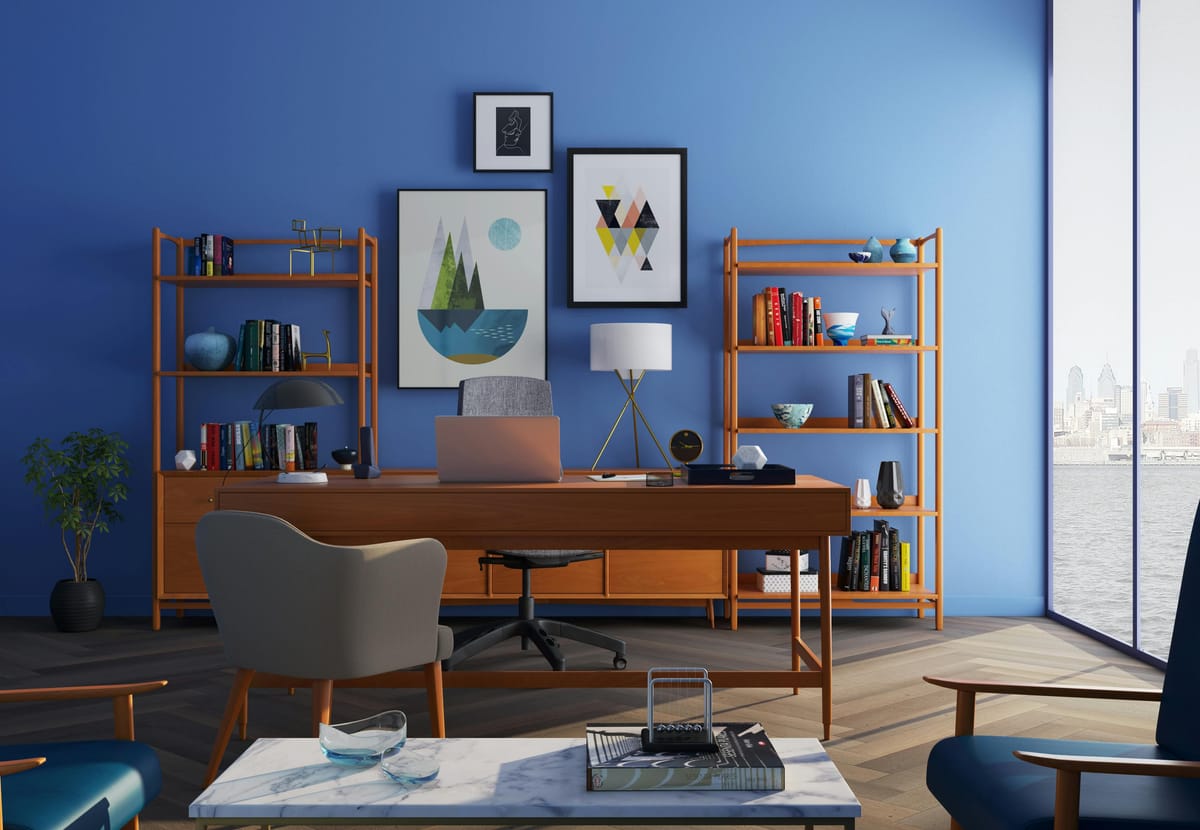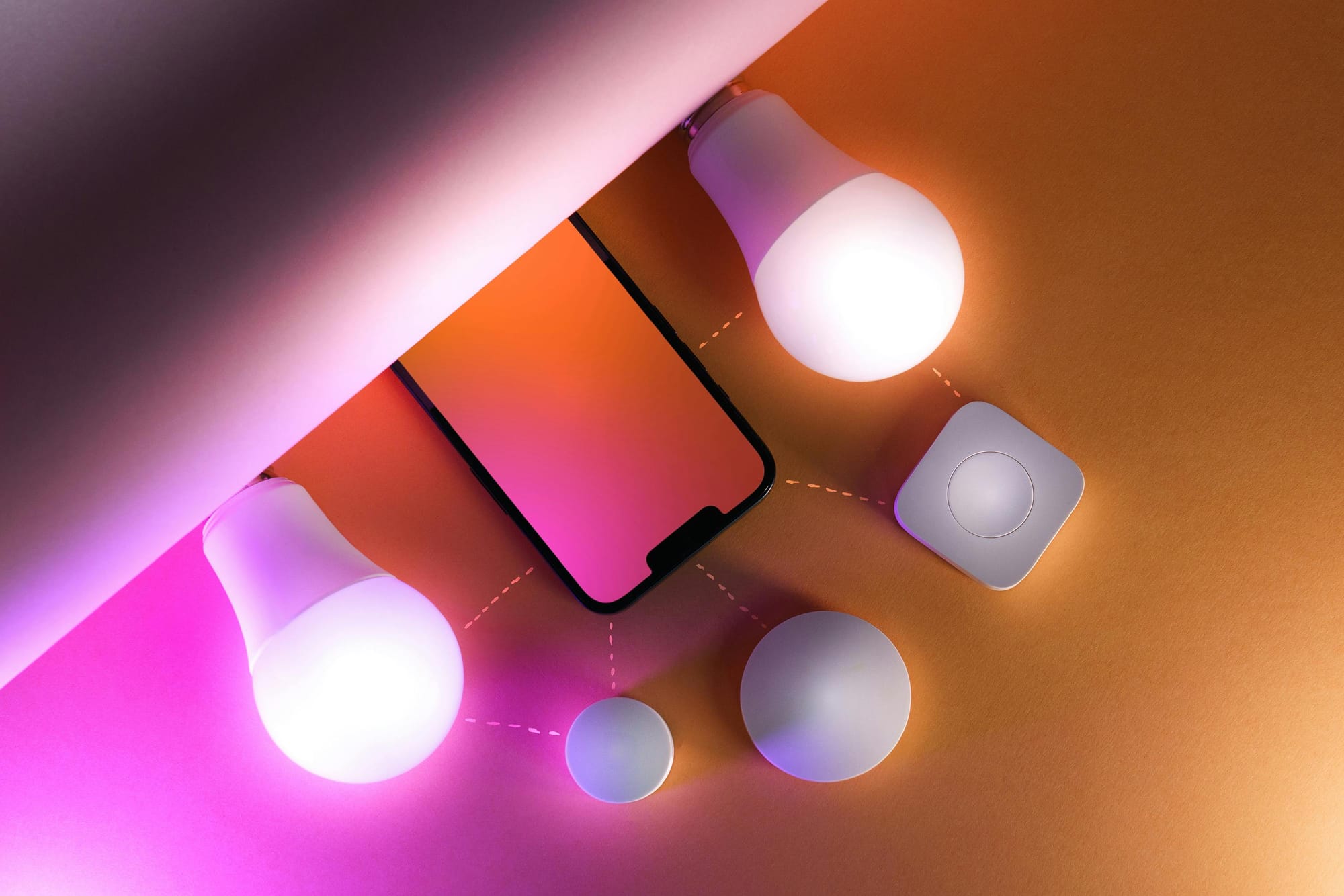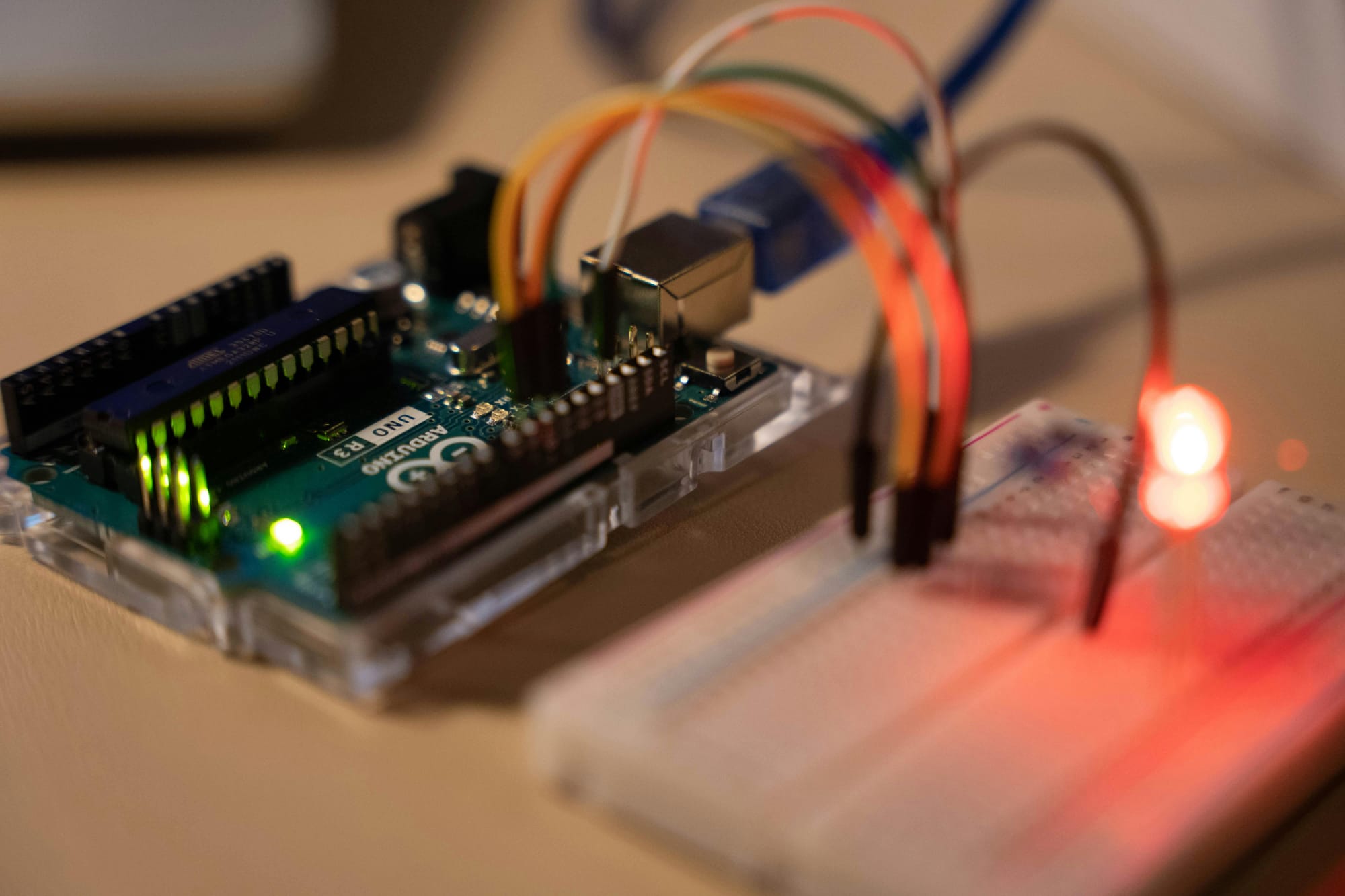What is a smart home?
A smart home should truly be smart. It automates lights using presence detection, tracks tasks like mail pickup, and reduces screen time. No switches or apps required. Just seamless automation that thinks ahead and simplifies your day.

As you might know, I work on Home Assistant. So why would I ask the question what a smart home is? So far I have seen a lot of them and everyone has a different vision on what a smart home is for them. Since I recently had the rare chance to buy an apartment, this vision is something that I will soon have to apply to my own home. I have been playing around with these ideas in my head for a while, and I am quite excited to share these with others as I think it will inspire some to explore new use cases or solve problems others have.
My vision consists of a few goals that I want to achieve. So let's first write them down and then I will expand on every goal later.
- My smart home must be smart
- My smart home extends beyond my home
- My smart home should not require a screen to operate
- My smart home prefers local products, but likes to flirt with cloud-based ones
- My smart home should not look smart
These goals aren't set in stone. These are the things that I found that have value for me at this moment in my life. Maybe I will get back to some at some point, or maybe I will have more in the future.
My smart home must be smart
My first goal feels like kicking in an open door. Why wouldn't a smart home be smart? It's in the word "smart home" right? It all depends on what you expect what your home does for you. So for example, I would prefer not to touch any light buttons anymore, as my home knows where I am based on presence (or motion) detection. You could even add more data into the mix: what time is it? How bright is the room (maybe it's one of those dark days)? And with all that data together you can determine if the room needs to be lit.

I do have to admit, removing the light switches is an extreme example. My dad always rolls with his eyes when I start talking about the idea, as he isn't used to such a smart home. But given that I lived 2 years on my own - without ever touching my light switches - I am convinced that I don't need them.
To give a less extreme example, I want to automate my mailbox to know that I need to go downstairs as I received mail. Where one would think it's sufficient to only detect if new mail was added, I also want to know if I collected it. Now THAT is smart! This way I can remind myself to open my mailbox when I get back home from the gym, and if I forget it because I am in a hurry, it could try again later.
I would like my home to help me with prioritizing my daily tasks, like making sure I water the plants or to sweep the floor. As a neurodivergent being who is doing a million things at the same time, a simple nudge at the right moment is simply enough to get the task done. Some people find it creepy that a computer will tell them what to do. I don't mind as it will help me a lot with making sure I spend time on the things that needs to happen (instead of side questing life).
My smart home extends beyond my home
No, this isn't to convince my realtor that my house is in fact bigger than the measurement tape indicates. I think that a smart home should cover more than just being able to turn on lights or to roll down a window blind. I would also like for my smart home to integrate with (self-hosted) services to add more information in my smart home. For example, I love the idea to have an e-ink screen in the hallway, telling me when the next train departs the station.
When I was living on my own, I was a big fan of Mealie. A self-hosted recipe manager, with built-in features for meal planning. I wrote an integration for it, and from then on I took a moment every Saturday morning to look at the discounts at the grocery stores and then decide on what I wanted to eat that week. And it was so cool to see what kind of effect it had on me, I might write another post about this.
Another cool way to incorporate real life into your smart home, could be with Paperless-ngx. Being able to scan your mail and then being able to search through them is amazing, and I will be looking into ways to incorporate that data into my smart home. For example by having a local LLM extract usable information from a letter when asked "When was the next doctors appointment?".
My smart home should not require a screen to operate
My college teachers would have died laughing if I told them this 10 years ago. I was quite used to using my phone all day long during school. At least TikTok didn't exist back then, I remember being quite productive back then. I wrote an operating system in Lua for a Minecraft mod called Computer Craft. At some point I moved on to writing Telegram bots. I was also watching some general knowledge things (Rush Hour 1, 2, and 3) during chemistry.
Quite a lot of friends keep calling me out on being on my phone with them around, and I am grateful for that. It makes me self-aware, and that realization is uncomfortable. Now I’ve started noticing this behavior in a lot more people. It's a normalized addiction by humanity at this point and I want to get rid of it. I want to be able to throw my phone in the corner and be able to have real-life conversations.
At my parents’ house, they sometimes still have to turn on a light manually. Then one of my parents will stand in the middle of the room, phone in hand, opening the Philips Hue app to turn on a light. When suddenly a notification (a message, ‘like’, or comment) pops up and distracts them, leaving them frozen in place. It makes me feel awkward to watch that. Is this where technology is going to lead us?
Hence my first point, my home should be smart. I should not need to use my phone to turn on a light. My house should know it. If there is something exceptional, I would rather use voice control and if there is something really really exceptional, I could use my phone. My smart home should not be a sophisticated way to turn on a light via my phone. Do note that I still like dashboards and would still continue to use them, but the more is automated, the less I have to control, the less complicated my dashboard is.
Making sure I have to do less actions, also makes sure I can keep my attention span for longer on things that matter. For example, as I am writing this, I am listening to a banger that Spotify spoonfed me using their daylist. I have a tendency to repeat such bangers by just restarting the song over and over again. But I still haven't pressed the like button because doing that gets me out of my attention span. Before I moved back to my parents, I had a physical button that I could press that would save the track to my likes. And that was awesome, since I could just continue writing, and not worry about finding Spotify on my phone or computer, it just worked. And so did I.
Another way I want to get rid of my phone is that I don't want it in the bedroom anymore. It affects my sleep by keeping me up late, and keeps me in bed in the morning. By detaching my phone from my sleeping schedule, I would get more quality sleep. One thing I care about is being able to know emergencies, that would be something that I can implement with my smart home, so if there's something that requires my urgent attention, that it wakes me up. This would give me peace of mind while sleeping.
My smart home prefers local products, but likes to flirt with cloud-based ones
The Open Home Foundation fights for privacy, choice and sustainability in your smart home. They regularly recommend using local-first devices. After all, many companies pick business models that either require selling many more devices or pushing users into monthly fees to keep servers running. Some companies even go bankrupt, turning your gadget into e-waste. So their advice to always look for local-first options is golden advice.

But cloud devices sometimes have really neat features. Recently I bought a Meater 2 Plus, mostly because it has Bluetooth and I wanted to play with integrating a Bluetooth device. I ended up in a discussion with a colleague, as the existing Meater integration already works and uses the cloud. It could show the exact type of meat you selected in the app to cook and the expected time until cooked. While from reading the Bluetooth data, I could only see the battery and temperature levels. This is nice, but then I would have to create a lot of automations or scripts to get more functionality out of it.
So my own stance is, cloud isn't bad. But you should accept the risk that your device might become less usable or even worthless in the future. With small things like a meat thermometer I am okay. But if I had to replace an entire car charger, it would be a much bigger problem.
My smart home should not look smart
I like to refer to this as a sleeper build, which is a really good computer hidden in a plain, old case. So you would deceive your friends on a LAN-party by showing up with your grandpa’s PC, only to blow them out of the water with its performance.
Although my smart home doesn't need high performance (as in, it should just work), I would like my smart home to be invisible. I want it to look like a normal home, but then surprise visitors with the fact that everything is automated. This can be as simple as hiding the robot vacuum under the couch, or as involved as adding hidden relays to the outlets to avoid using bulky smart plugs.
As I am quite a nerd myself, I don't want my home to also emit that vibe. My home should be welcoming, exciting and cool.

Conclusion
So with these goals in mind, I am getting excited to start designing my smart home. My goal is to take you along on this journey, in the form of blog posts, as there’s a lot to explore. Maybe it will inspire you to improve your smart home even more! Since I am still working on my new home, I won't start posting regularly yet, but stay tuned!
Joost
